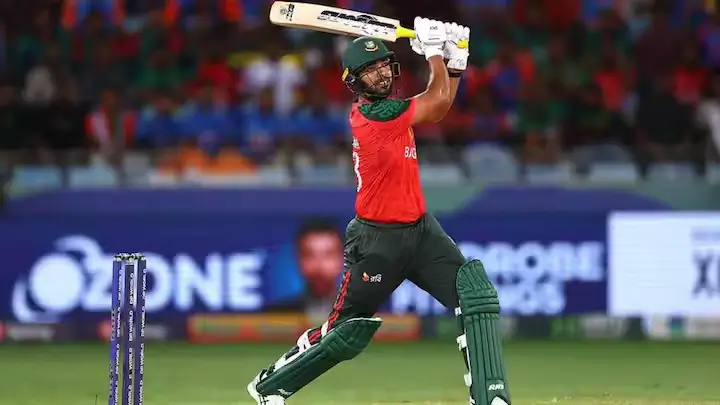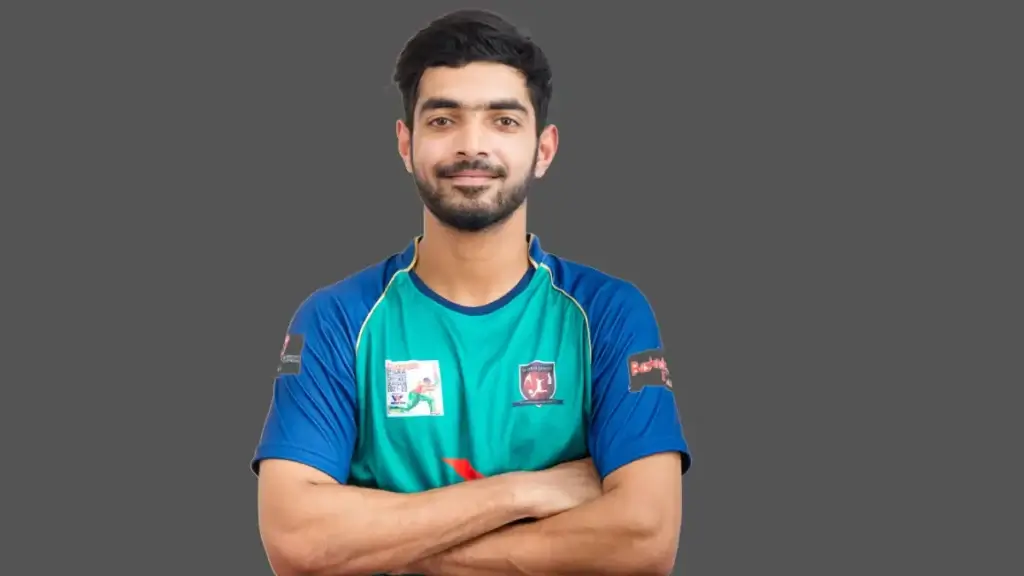The Bangladesh Cricket Board has reshaped its leadership framework across all formats, with young batter Saif Hassan appointed as the new T20I vice-captain. The move signals BCB’s growing desire to invest in long-term leadership depth while supporting senior figures ahead of the ICC Men’s T20 World Cup 2026. Saif’s rapid rise has been a result of consistent performances, improved shot selection, and calm temperament in pressure moments — traits that Bangladesh sees as valuable in the fast-evolving T20 format and improve the timeline.
Alongside Saif’s elevation, BCB also confirmed updated vice-captaincy roles in Tests and ODIs. Mehidy Hasan Miraz takes over as Test vice-captain while Najmul Hossain Shanto steps in as ODI vice-captain, continuing a leadership cycle designed to distribute responsibility across key players. BCB also announced significant committee reshuffles, including Rubaba Daula’s appointment as Chairperson of the Women’s Wing, and structural changes within the High Performance and Grounds departments.
Amid these administrative updates, the board also scheduled a crucial gender-sensitivity training session for officials and women cricketers, following allegations of harassment by former captain Jahanara Alam. The board reiterated its stance of “zero tolerance” and set up an investigative committee to review all claims.
Saif Hassan’s Rise as a Leader in Bangladesh Cricket
Saif Hassan’s appointment as T20I vice-captain marks a notable shift in Bangladesh’s leadership philosophy. The team has increasingly leaned toward nurturing young players who can carry long-term responsibility. Saif’s recent T20I performances have shown maturity, especially his ability to bat in different phases of the innings, adapt to conditions, and anchor chases under pressure.
BCB’s announcement highlighted Saif’s consistency and composure as key reasons behind the promotion. Litton Das remains the T20I captain until the 2026 World Cup, providing a senior-junior leadership pairing that balances aggression and calmness, and helps Bangladesh strategise more effectively in global tournaments. Saif is expected to take more tactical ownership in field settings, powerplay strategies, and middle-overs batting plans as part of his new role.
Updated Vice-Captaincy Roles Across All Formats
BCB revealed a complete reorganisation of vice-captaincy duties across all formats. Mehidy Hasan Miraz replaces Shanto as the Test vice-captain, strengthening Bangladesh’s long-format leadership group. Shanto continues as Test captain for the remainder of the current ICC World Test Championship cycle.
In ODIs, Shanto shifts to vice-captain under Miraz, who was earlier confirmed as the ODI skipper for a one-year duration. This format rotation ensures both players gain leadership experience and stay ready for future primary captaincy responsibilities.
Administrative Reshuffling and Committee Realignments
Significant structural updates were announced at the board level. Rubaba Daula steps in as Chairperson of the Women’s Wing, succeeding Abdur Razzak, who moves on to become Chairman of High Performance. Razzak replaces Khaled Mashud, who will now oversee the Grounds Committee.
BCB President Aminul Islam, who previously led the Grounds Committee, steps back following recent board elections. These changes reflect BCB’s intent to streamline departmental workflows and match individuals with roles aligning with their expertise.
BCB’s Gender-Sensitivity Training Initiative
Following serious allegations by former national team captain Jahanara Alam about inappropriate conduct and mental harassment during the 2022 Women’s World Cup, BCB has initiated gender-sensitivity training.
A one-hour session is scheduled for department heads at the Sher-e-Bangla National Stadium, while a separate training will be held earlier in the day for women cricketers. The sessions aim to reinforce awareness, promote safe work environments, and establish accountability across all levels of Bangladesh cricket.
High-Level Committee Formed to Investigate Harassment Allegations
BCB formed a five-member panel led by retired Justice Tariq ul Hakim to investigate Jahanara Alam’s claims. The committee also includes Rubaba Dowla, Professor Dr Naima Huq, Barrister Muhammed Mustafizur Rahman Khan, and lawyer Sarwat Siraj Shukla.
The board emphasised its commitment to transparency and reiterated its “zero tolerance” policy for any form of harassment, ensuring a thorough investigation and corrective action where required.
How Saif Hassan’s Appointment Shapes Bangladesh’s T20 World Cup Preparations?
Saif’s promotion comes at a crucial moment, with less than a year before the 2026 T20 World Cup. Bangladesh aims to build a settled leadership group that can make sharp, data-driven decisions on field.
Saif’s analytical approach, coupled with Litton Das’s experience, brings a balanced combination for T20 cricket. The duo is expected to work closely on powerplay partnerships, death-overs planning, and better utilisation of all-rounders — areas where Bangladesh has often struggled in ICC tournaments.
The Leadership Balance Between Miraz and Shanto Across Formats
Bangladesh now has a unique leadership model where Miraz and Shanto share responsibilities across formats. This reduces individual workload, avoids burnout, and keeps both leaders sharp and challenged.
Miraz’s calm all-round presence complements Shanto’s more tactical and aggressive decision-making style, giving Bangladesh a dual-leadership system praised by analysts for stability.
Development Pathways Strengthened by High Performance Restructuring
The shift of Abdur Razzak to High Performance is expected to strengthen Bangladesh’s talent pipeline. His experience in domestic cricket and player development makes him an ideal figure to oversee youth grooming, fitness programmes, and Bangladesh A tours.
This move could help Bangladesh produce more format-specific specialists, a long-term demand from fans and experts.
Impact of Gender-Sensitivity Programs on Bangladesh Cricket Culture
Gender-sensitivity training, especially after public allegations, marks a transformative step in Bangladesh cricket. It sets a tone for accountability and respect, ensuring that both male and female cricketers operate in a safe, professional environment.
Such sessions also help administrators understand workplace ethics, boundaries, and communication — essential for restoring trust within the women’s cricket ecosystem.
By announcing a strict zero-tolerance policy, BCB aims to build confidence among players, parents, and stakeholders. Harassment allegations can affect team morale, recruitment, and the sport’s image.
A firm stance with transparent action signals that Bangladesh cricket values integrity, safety, and professionalism above all else.




